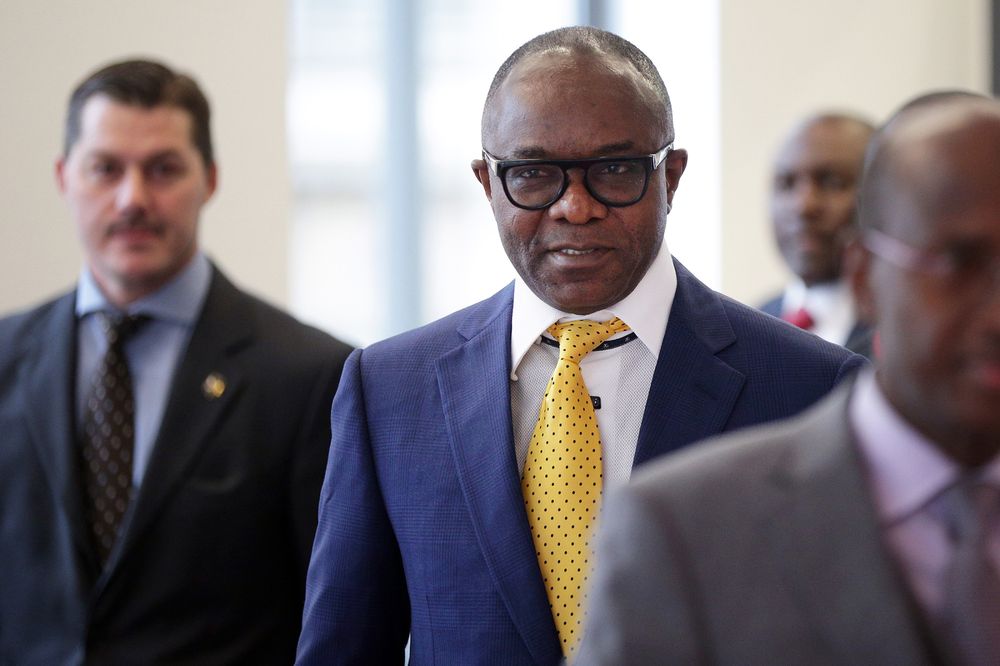- FG Targets $2bn From Oil Block Licence Renewal
The Minister of State for Petroleum Resources, Dr Ibe Kachikwu, has said the Federal Government is targeting about $2bn from the renewal of oil and gas leases.
Kachikwu disclosed this on Wednesday while fielding questions from journalists at the Nigeria International Petroleum Summit in Abuja, as contained in a report by the News Agency of Nigeria.
“We projected for the licence renewal probably around $2bn; right now, we are at about $1.2bn, $1.3bn. I don’t have the total number of the people renewing but I’m aware it should be around 20 to 30 renewal,” he said.
He said that although most of the licences were due for renewal between 2019 and 2020, the ministry decided to start early to generate funds.
According to the minister, the law allows that a licence can be renewed six months before expiration.
“We decided to start the process early to generate some revenue for the government. We also look at the terms under which they are renewed; that is all that we are doing,” he said.
Kachikwu noted that early renewal was necessary for many companies to have the opportunity to access money from banks for investment.
Kachikwu also expressed worry over the number of oil and gas fields that were sitting idle in the portfolios of international oil companies operating in the country.
He spoke during a session where Total E&P Nigeria Limited and Shell Petroleum Development Company made presentations on their deepwater projects.
The minister said, “We will still continue to be worried about a lot of our fields that are lying fallow in the hands of multinationals. As we renew leases, we are going to be looking at how you can do it yourself or we come in to help you to release some of those fields so local players will get a sizeable hold into some of the fields that are not commercial for the majors.
“We have tonnes and tonnes of acreages that are just lying down; nothing can be done about them. They are tied up by legal challenges. We need to sort of open up the fields.”
According to him, indigenous operators’ contribution to national oil production is currently around 11 per cent.
“I would like to see that grow to about 30 per cent in the next couple of years,” Kachikwu said.
The Managing Director, Shell Nigeria Exploration and Production Company, Mr Bayo Ojulari, said over the last decades, the company’s exploration activities had resulted in the discovery of several significant oil and gas resources, including Bonga, Bolia , Zabazaba and Doro fields.
“We have a healthy portfolio of projects into the 2030s, which can be developed and produced competitively and efficiently to sustain SNEPCo’s position as a leader in deepwater in Nigeria,” he added.
The Deputy Managing Director, Deepwater Assets, Total E&P Nigeria, Mr Musa Ahmadu-Kida, noted that the Egina deepwater oilfield recently started production and would peak at 200,000 barrels per day.
He said the company was moving to a new project, Preowei field located on Oil Mining Lease 130, adding that the field development plan was submitted for approval last year.
He noted that the third appraisal well on the field was drilled in 2017 and it confirmed the availability of reserves.

 Forex2 weeks ago
Forex2 weeks ago


 Naira2 weeks ago
Naira2 weeks ago
 Naira4 weeks ago
Naira4 weeks ago
 Company News4 weeks ago
Company News4 weeks ago
 Billionaire Watch1 week ago
Billionaire Watch1 week ago




 Naira2 weeks ago
Naira2 weeks ago




 Naira4 weeks ago
Naira4 weeks ago




 Naira1 week ago
Naira1 week ago






















